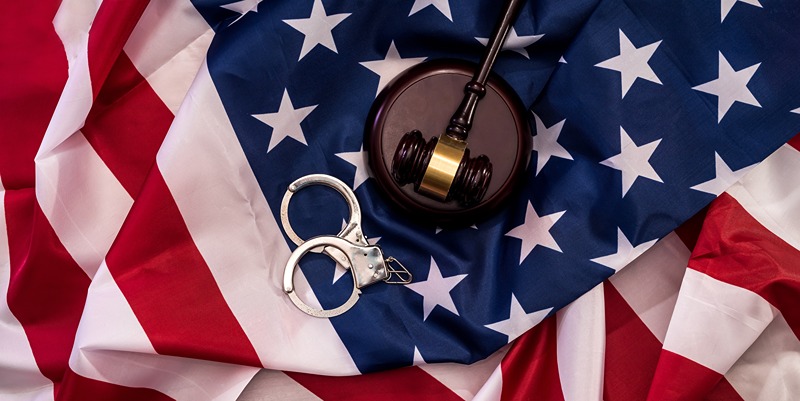
Sunday, June 9, 2024
Wednesday, June 5, 2024


Investigative Article: Analyzing State DUI Laws: Toughest Vs Most Lenient
Introduction
Driving under the influence(DUI) is a serious offense in the United States. Every state has its own set of DUI laws, and the penalties, as well as the severity of the crime, vary widely from state to state. In this investigative article, we will analyze and compare the state DUI laws of the 50 states of the United States and derive a conclusion on which state has the toughest and which one has the most lenient DUI laws.The Most Lenient States
According to our research, the most lenient states when it comes to DUI laws are South Dakota, North Dakota, and Pennsylvania. South Dakota has no mandatory jail time, and the first time offenders face only fines. North Dakota's mandatory jail time is only for repeat offenders, and the first time offenders may face only fines. Pennsylvania has no mandatory IID installation or minimum jail time, even for repeat offenders.The Toughest States
The states with the toughest DUI laws are Arizona, Georgia, and Alaska. Arizona is the only state that imposes mandatory IID installation and jail time for first-time offenders. Georgia treats DUI offenses as felonies, and the mandatory minimum jail time is longer than most other states. Alaska too has a mandatory IID installation policy for first-time offenders, and the misdemeanor DUI is treated as a felony.The Impact of DUI Laws
Adopting tougher DUI laws has been proven to reduce the number of drunk driving accidents and fatalities. A study conducted by the National Highway Traffic Safety Administration (NHTSA) found that states that had stricter DUI laws had fewer DUI accidents and fatalities. Stricter laws create a deterrence for people to drink and drive.The Economic Impact
DUI crashes impose a significant economic burden on society. According to a study by the Pacific Institute for Research and Evaluation, the cost of DUI crashes in the United States was over $44 billion in 2019. Tougher DUI laws could save billions of dollars of economic loss in terms of property damage, medical expenses, and legal costs.The Social Impact
The social impact of DUI crashes is immeasurable. Every year, thousands of people lose their lives, families, and friends due to DUI accidents. Tougher DUI laws do not only create a deterrent effect but also demonstrate the seriousness of the offense and provide closure to the victims' families.The Political and Legal Challenges
Although adopting tougher DUI laws could improve public safety, it faces political and legal challenges. Some states and lawmakers are reluctant to take stricter measures as DUI convictions affect the employment prospects of offenders. Critics argue that the mandatory IID installation and jail time are too harsh for first-time offenders.The Conclusion
In conclusion, DUI laws vary widely from state to state, and some states are stricter in their approach than others. The impact of tougher DUI laws cannot be underestimated in terms of reducing accidents, fatalities, and economic and social loss. Arizona, Georgia, and Alaska top the list when it comes to the toughest DUI laws, while South Dakota, North Dakota, and Pennsylvania have the most lenient DUI laws. Only time will tell if all the states in the country will adopt stricter DUI laws for the greater public good. DUI Laws: Toughest Vs Most Lenient-State,ToughestThursday, April 18, 2024


The Key Differences Between Federal and State Criminal Charges
Have you ever wondered what the difference is between federal and state criminal charges in the United States? If so, you're not alone. The criminal justice system in the U.S. is complex and can be confusing, especially when it comes to understanding the differences between federal and state crimes. In this article, we will explore the key differences between federal and state criminal charges, including jurisdiction, legal standards and sentencing, dual sovereignty doctrine, case studies, and exclusive federal crimes.
Jurisdiction and Authority
One of the most significant differences between federal and state criminal charges is jurisdiction. State courts have jurisdiction over crimes committed within their respective states, while federal courts have jurisdiction over crimes that violate federal law, occur on federal property, or involve crossing state lines. Generally speaking, federal court cases involve violations of federal law, while state court cases involve violations of state law.
Another difference between federal and state criminal charges is authority. Federal law enforcement agencies, such as the Federal Bureau of Investigation (FBI) and the Drug Enforcement Administration (DEA), investigate and enforce federal crimes. State law enforcement agencies, such as state police and local sheriffs, investigate and enforce state crimes.
Legal Standards and Sentencing
There are also differences in legal standards and sentencing between federal and state criminal charges. For example, federal crimes typically have stricter sentences than state crimes. Federal judges must follow federal sentencing guidelines, which are often more severe than state guidelines. Additionally, federal criminal trials have stricter rules of evidence than state trials.
Another difference is the legal standard of proof required to secure a conviction. In federal court, the prosecution must prove guilt beyond a reasonable doubt, which is the highest standard of proof. In state court, the standard of proof is typically lower, such as preponderance of the evidence or clear and convincing evidence.
Dual Sovereignty Doctrine
The dual sovereignty doctrine is another important concept to understand when it comes to federal and state criminal charges. This doctrine allows individuals to be prosecuted for the same crime in both federal and state courts. This means that if an individual is charged with a crime that violates both federal and state laws, they could potentially face charges in both federal and state court.
The dual sovereignty doctrine has been the subject of much debate in recent years, with some arguing that it violates the Double Jeopardy Clause of the Fifth Amendment to the U.S. Constitution, which prohibits individuals from being tried twice for the same crime.
Case Studies
Case studies can provide valuable insights into the differences between federal and state criminal charges. One example of this is the case of Timothy McVeigh, who was convicted of the 1995 Oklahoma City bombing that killed 168 people. McVeigh was charged with a federal crime and ultimately sentenced to death. His co-conspirator, Terry Nichols, was charged with state crimes and received a life sentence.
Another example is the case of O.J. Simpson, who was charged with both federal and state crimes in connection with the murders of his ex-wife and her friend. Simpson was acquitted of the state charges but was found liable for the deaths in a civil trial. He was also later convicted of federal charges related to the case, including conspiracy and obstruction of justice.
Exclusive Federal Crimes: Offenses Governed Solely by Federal Law
There are some crimes that are exclusively governed by federal law and cannot be prosecuted by state authorities. These are known as exclusive federal crimes. Examples of exclusive federal crimes include crimes committed on federal property, such as national parks, and crimes that involve crossing state lines, such as kidnapping and drug trafficking.
The Importance of Understanding Federal and State Criminal Charges
Understanding the differences between federal and state criminal charges is crucial for anyone navigating the criminal justice system in the United States, whether as a defendant, victim, or witness. Knowing which court has jurisdiction over a particular crime, the legal standards and sentencing involved, and the potential for dual sovereignty can help individuals make informed decisions and navigate the system more effectively.
Conclusion
While federal and state criminal charges share many similarities, there are also important differences that can have a significant impact on the outcome of a case. Whether you are facing charges or involved in the criminal justice system in some other way, it is important to understand how federal and state criminal charges differ. By doing so, you can better protect your rights and make informed decisions.
Federal,StatePopular Posts
-
Nevada's New Marijuana Laws: What You Need to Know With the passing of Question 2 in 2016, Nevada became one of the latest states to l...
-
Defending Your Rights: Unveiling the Role of a Phoenix Criminal Lawyer Getting accused of a crime can be a terrifying and overwhelming exp...
-
The Importance of Hiring a DUI Attorney in Phoenix, AZ In the United States, driving under the influence (DUI) is considered a serious cri...
Categories
- Aggravated (2)
- Arizona (3)
- Country (1)
- Criminal (2)
- Criminal Law (1)
- CriminalLaw (3)
- Divorce Law (2)
- Driving (1)
- Drug (2)
- DUI (2)
- dui law (4)
- duilaw (1)
- Family Law (2)
- FamilyLaw (3)
- Federal (2)
- Filing (1)
- Furnishing (1)
- hiding (1)
- Illegal (1)
- Investigations (1)
- Jurisdiction (1)
- marijuana (5)
- penalties (2)
- Simple (1)
- SLAPP (1)
- Society (3)
- State (3)
- Suspended (1)
- Tax (1)
- Theft (1)
- Toughest (2)
- Vehicle (1)
- White (1)